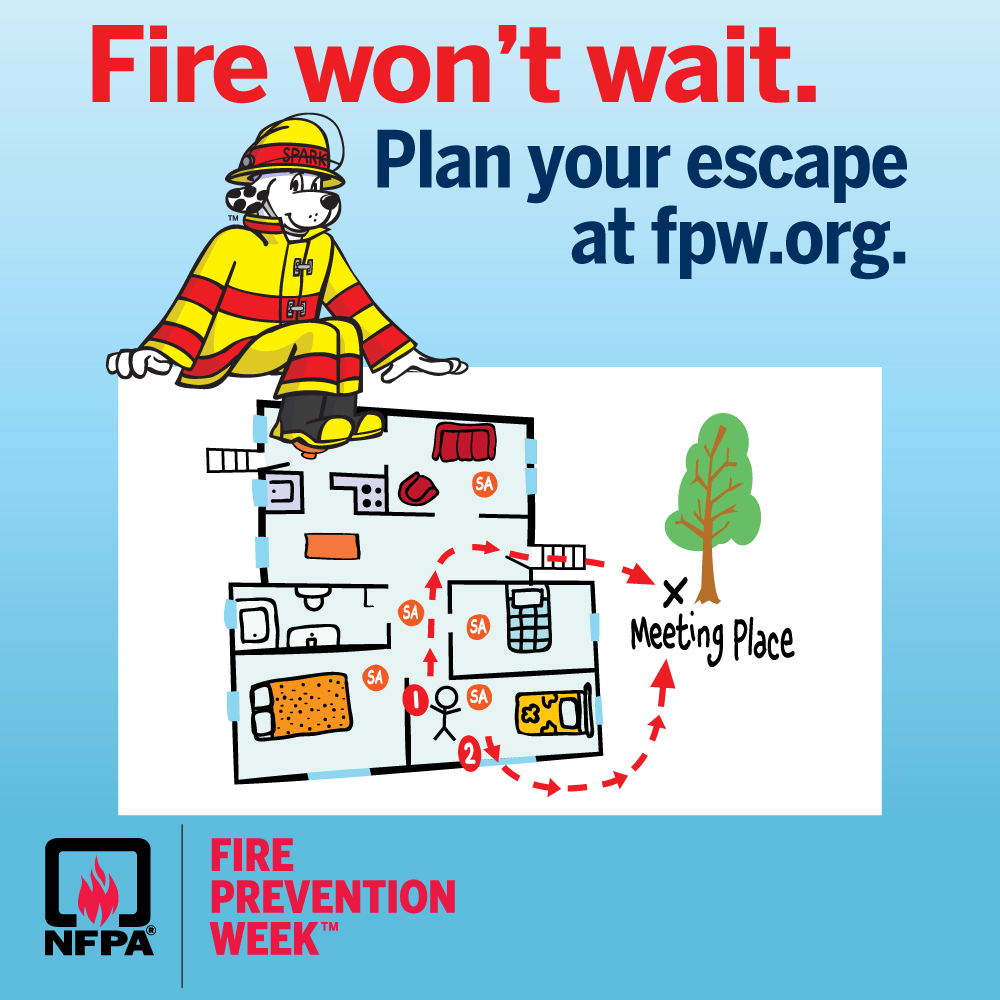
Fire Prevention Week 2022
October 9th-15th, 2022, is Fire Prevention Week (FPW). This year marks the 100th anniversary of FPW. The NFPA has sponsored the public observance of Fire Prevention Week since 1922, and it was made a national observance in 1925. Fire Prevention Week is observed during the week of October 9th, in commemoration of the Great Chicago Fire which began on October 8, 1871. This devastating fire killed more than 250 people, left 100,000 homeless, and destroyed more than 17,400 structures. The goal of FPW is to teach the public how to stay safe in case of a fire. This year’s theme is “Fire won’t wait. Plan your escape. ™”
Plan & Prepare for Home Fires
Today’s homes burn much faster than older homes. You may have as little as 2 minutes to safely escape a fire in your home after the smoke alarm goes off.
You, your family, and your loved ones must take the steps needed to be prepared when a fire occurs. Your safety depends on early warning from smoke alarms and advanced planning. Plan and practice your home fire escape plan before a fire occurs. Make sure everyone in your household knows what to do. Children, older adults, and people with disabilities may need assistance to wake up and get out.
Make a Home Fire Escape Plan
Take the time to make a home fire escape plan for your home. Once you have a plan created, practice your home escape plan twice a year. Here are some steps you can follow to make a thorough home escape plan:
- Draw a map of all the rooms in your home.
- Mark two exits from each room (usually a door and a window). Mark a path from each exit to the outside.
- Include the location of all smoke alarms in your home.
- Choose an outside meeting place in front of your home where everyone will meet upon exiting.
- Add “911” or the local emergency number to your plan.
- Plan to call that number from a neighbor’s phone or a cell phone once you get outside.
Are Your Smoke Alarms Ready?
Mere seconds can differentiate a fire escape and a fire tragedy. When every second counts, early warning of a fire is critical. Smoke alarms can sense smoke before you can, but you must take care of them so that they will work when needed. Test your smoke alarm once a month and replace the batteries if they stop working.
You should have smoke alarms in every bedroom, outside of the sleeping areas (such as a hallway), and on each level (including the basement) of your home. Don’t put smoke alarms in kitchens and bathrooms. Choose an alarm that is listed with a testing laboratory, meaning it has met certain standards for protection.
Install combination smoke and carbon monoxide alarms that are interconnected throughout your home so that when one sounds, they all sound, and everyone can hear them no matter where you are in the home.
If you are interested in learning more about fire safety or Fire Prevention Week, visit the NFPA’s website.